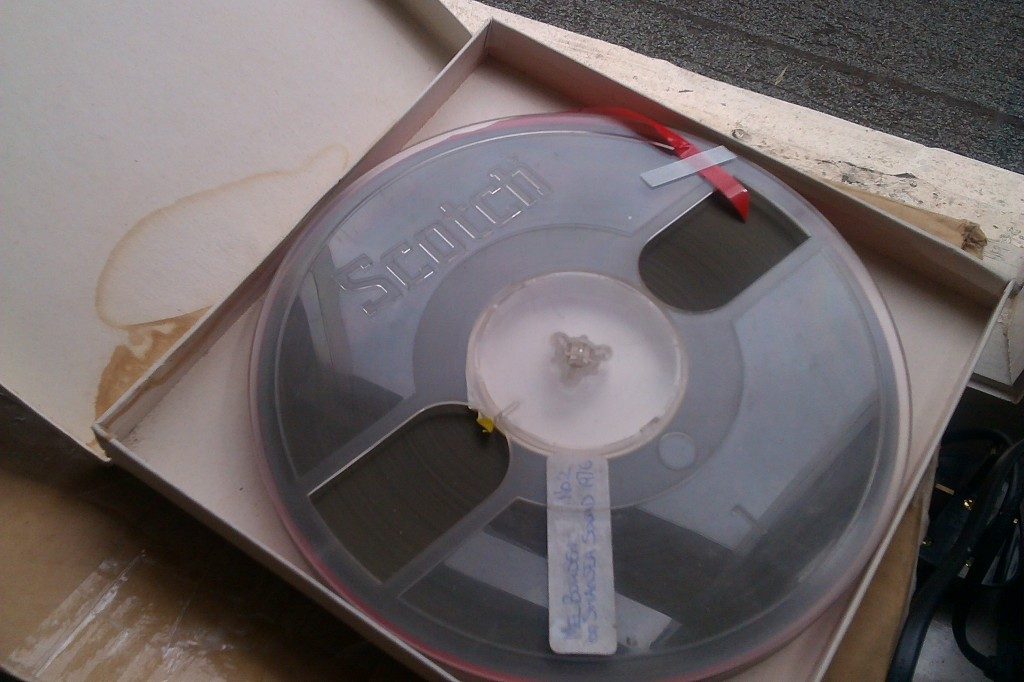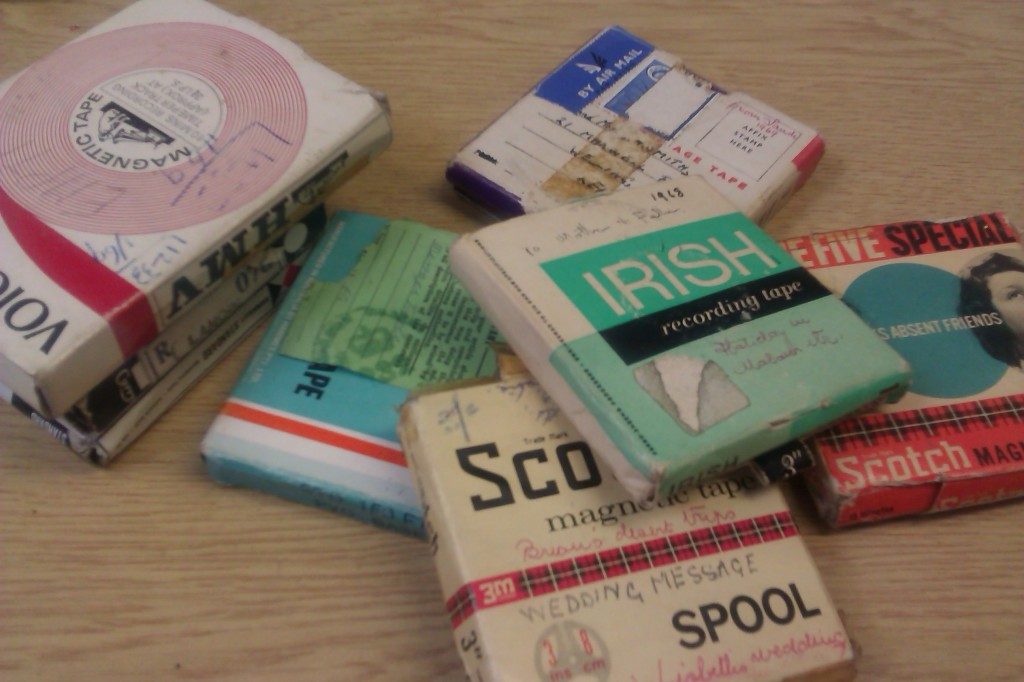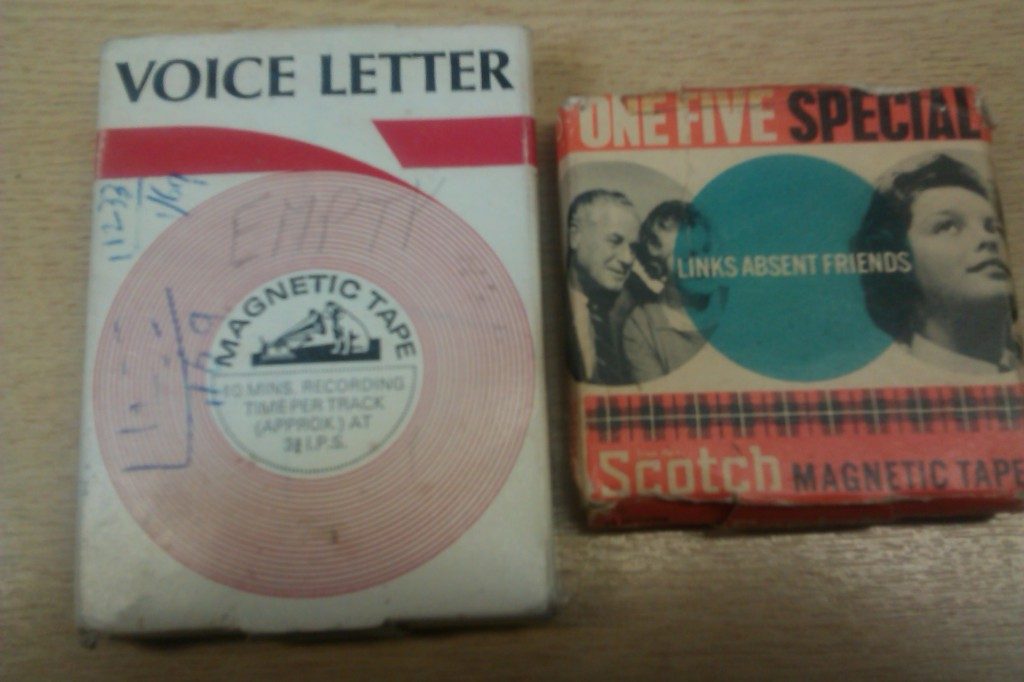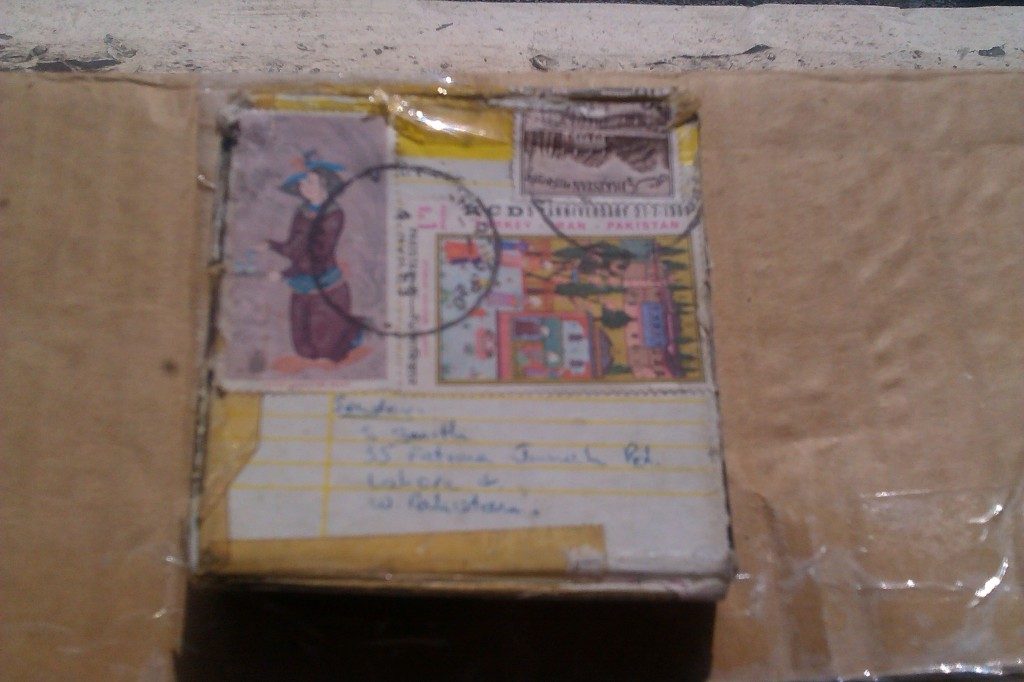In today’s digital society most people have an archive. On personal computers, tablets and mobile devices we store, create and share vast amounts of information. We use archives to tell others about our lives, and the things that are important to us.
Gone are the days when archives were dusty, dark places where experts went to research esoteric knowledge. Archives are everywhere. They are dynamic, digital and personal, as well as being institutional, historical, corporate and civic.
The creation of personal archives is of course nothing new, but the digital age forces us to have a far more intimate relationship with information, and its organisation. Put simply, there is loads more information, and if it isn’t collected in a systematic way you may well drown in a sea of your own, not to mention everybody else’s, data. Maybe this is happening to you right now! If so, you need to embrace the archival moment and get your own collections in shape.
Part of this everyday information management is migrating archives stored on obsolete formats, such as the many different types of analogue and digital magnetic tape we work with at Greatbear. Digitising tape gives it new life, allowing it to be easily circulated, shared and used with today’s technologies.
A significant amount of the Greatbear’s work involves digitising the diverse collections people produce in their everyday working, creative and social lives.
Here are two recent digitisation projects which are a good example of our work.
Swansea Sound 1976
We were sent a number of ¼ inch reel to reel Scotch 3M tape ‘made for the BBC’ tape, recorded at the rate of 7 ½ inches per second from local radio station Swansea Sound in 1976. The tapes were all in good condition, although the boxes had some evidence of water damage. Over time the tension in the tape pack had also changed, so they required careful re-spooling before being played.
The recordings were fascinating to digitise because they communicated how little the format of radio programmes have changed since the late 1970s. Jingles, news reports, chat and music were all part of the show, and anyone familiar with BBC Radio 2 would certainly enjoy the recordings, that still seem to be played every Saturday morning!
Brian Pimm-Smith’s recording diaries and tape letters
Another collection was sent to us from Brian Pimm-Smith. Brian enthusiastically documented his life and work activities using a Uher open reel portable tape recorder which he acquired in 1963. The box included many ¼ inch tapes that could record up to 10 minutes at 3 and ¾ inches per second. These tapes could also record up to 4 mono tracks at 10 minutes each, allowing for storage of up to forty minutes at a time. The main bulk of the collection is a series of spoken letters sent to and from Pimm-Smith and his family, who between them lived in Britain, Pakistan, Rhodesia (now Zimbabwe), Japan and Saudi-Arabia, but it also includes recordings of when Brian worked taking weather measurements for the British Antarctic Survey.
Some of the 1/4 inch tapes were marketed by companies such as Scotch and EMI specifically to be used as ‘voice letters’ that ‘links absent friends’. Despite this Pimm-Smith said that making such recordings was pretty rare, something ‘quite out there’ for most people. Brian’s mother nonetheless embraced the activity, as they shared correspondence back and forth between wherever they lived at the time.
The 1/4 inch tape boxes in themselves are a colourful record of international postage in the late 1960s. Sent from Pakistan, Rhodesia (now Zimbabwe), Saudi Arabia, Australia and Japan, the small boxes are plastered with stamps. The boxes were reinforced with sellotape to ensure the contents didn’t fall out (which is still stuck fast to the boxes, by the way, clearly demonstrating the surprising longevity of some forms of sticky tape). Pimm-Smith’s tapes are fascinating objects in themselves that bear the marks of travel through space in the form of postal stamp marks, and time, as they sit on the desk now in the Greatbear Studio.
Perhaps the most exciting and unique recording Brian has kept is the audio diary of his trip through the Sahara desert. For the trip Brian drove an early 70s Range Rover which had a cassette player-recorder, a technological device only available in Africa which used audio cassette tapes. This enabled him to document his impressions as he drove along. Brian describes how he had taken a portable typewriter with the intention of keeping a written diary, but he used the tape recorder because it was more ‘immediate.’ On hearing the digitised tapes Brian was amazed at how clear the recordings sound today, particularly because he was driving at the same time and there was likely to be background noise. You can hear the hum of the car engine in the extract below, but the voice is still clearly very audible.
http://thegreatbear.co.uk/wp-content/uploads/blog-example-cassette-tape-1.mp3
Listen to Brian talk about problems with his tyre as he drove across the Sahara Desert in 1976
The stories Swansea Sound radio and Pimm-Smith’s collection tell are part of wider social histories. They tell us about communities and places, as well as the continuities of style in broadcast radio. They tell us how people used analogue tape recordings to document personal adventures and communicate with families who lived in different countries.
Both tapes are examples of the sheer diversity of personal, magnetic tape based archives that people have been keeping for years, and which we digitise at the Greatbear. Brian Pimm-Smith contacted Greatbear because he wanted to make his tapes accessible, and preserve them for future use. He is hoping one day to write a book from his many adventures and these recordings can now remind him not only of what he did, but how he felt in the moment he made them.






Hello, I recently found a “Scotch sound recording tape” “Talking Letter” that my father sent to my mom when he was just a “Pfc” in the military. My dad passed in 1996, and my mom just passed away, on December 2 2019. I’m looking into how can I get this tape translated or listen to it.? Is there a device I can purchase?
Thank you Nydia.
Hi Nydia
Thanks for your comment – I’ve replied to you by email.
Thanks
Hello!
What an awesome website 🙂
My mum has found a few of these “Voice Letter” tapes from her grandparents and I am hoping to help her find a way to listen to them. If you can provide any feedback it would be greatly appreciated! This is the only website so far that I’ve found a picture that matches what’s in my hand.
Thank you!!
Daniel
Hi Daniel
Thanks for your comment – we’d be happy to help with your Voice Letter tapes and I’ve emailed you about these.
Thanks
Adrian
I have several voice recordings from my husband when he was in Viet Nam.i would like to be able to listen to them. Can you help me with that.
Thank you.
Hi Kathy
Thanks for your comment on this page – we’d be happy to help with your recordings.
I’ve sent you an email.
Thanks
Adrian
I have some voice tapes on 1/4” that my whole fe and I recorded while I was in Vietnam in 1969-70. Can you send me some info about how we could listen to them again. Thank you.
Hi Don
Thanks for your comment on this page – I’ve replied by email.
Adrian
Hi my mom recently found a small reel of magnetic recording tape from, HER mom’s wedding and we wanted to listen to it is there some sort of machine we need to buy to be able to play it?
Hi Sabrina
Thanks for your comment and yes you would need a 1/4″ reel to reel tape machine to replay this tape and one that plays at the correct speed. Your tape was probably recorded at 3 3/4 inches per second (ips) or 7.5.
You can contact us with our email form if you need more details:
https://thegreatbear.net/contact-us/
Adrian
I found a tape in the attic Scotch one five.
I sent it to him when we were in the forces, it was 1967.
He died 2 months ago relating to cancer and I would really like to hear it again
Hope you can help me.
Thankyou
Val
Hi Valerie
Thanks for your comment – I’ve replied to you by email.
Adrian
We just found one of these from when Dad was on Vietnam. We would love to get some information about hearing what is on it!
Hi Andrea
Thanks for your comment I’ve replied to you by email.
Adrian
My husband has many of the voice tapes but also some color movie tapes from his dad sanding then from Vietnam.
How can we listen do them. Please let us know.
Hi Monika
Thanks for your comment – we’d be happy to help with your reels of audio tape, etc but we are based in the UK so you may want to find a service closed to home?
Thanks
I would like to know if you can convert this letter tape from Vietnam so I can hear it. Never was able to!
Hi Linda
Thanks for your comment – I’ve replied by email.
Adrian
1/4” tape on 7”reel recorded on a Sony portable 5” reel to reel in South Korea in 1967/68. Please send me estimate or quote. Thanks in advance.
Hi Bobby
Thanks for your comment, I’ve replied to you by email.
Adrian